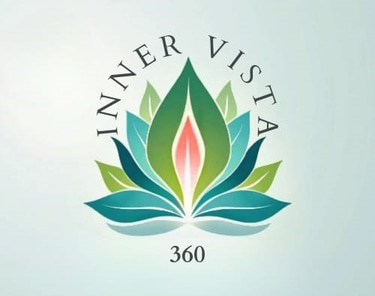The Art of Breathing: How Observing Your Breath Can Transform Your Life


The Unseen Superpower
Human body is an epitome of power therefore keeping it in mind, lets put into perspective a fact, we can survive weeks without food, some days without water but only a few handful minutes without breath. This tells how important it is, yet these days people are so much into fitness that they spend more time tracking the steps and calorie intake than thinking about the quality of breath. Breathing is not just biology; it goes back to our ancient yogic traditions. At present it connects to the branch of neuroscience, countless forums have reflected the breath as a bridge between body, mind and soul. The simplest act of just “observing” your breath, particularly, mindful breathing can result in stress free life with improved mental health.
Why to observe?
One can ask that when all this is a natural process then to bother? But people must just learn from their own experience, when we are under stress we live in a state of shallow breathing. Quick upper chest breathing is what our body responses with. Our brain receives signals that we are in danger, keeping us anxious and reactive. On the contrary, slow, deep and intentional breathing activates the parasympathetic nervous system, our body’s rest and digest mode. Just a few focused breaths can lower cortisol levels, reduce blood pressure and calm the mind. This is not coming from my experience or it is not anecdotal but it is proven by a growing body of scientific research. A 2018 study published in Frontiers in Human neuroscience found that slow-paced breathing enhances vagal tone, leading to better emotional regulation and reduced anxiety.
Observing the breath
Honestly speaking, in this glamourous world you might think that even this conscious breathing means having tools like: yoga mat or a quite room but in reality, you can observe your breath even while you are reading this blog. Hold on, wait for a second, breathe, you must have observed it.
You can try the below listed acts,
Sit comfortably, posture must be composed and close your eyes (if that feels safe).
Inhale through your nose for a count of four.
Exhale gently through your mouth for a count of six.
Repeat for two minutes and feel the peace! (thank me later)
Not to forget, observing your breath does not mean you would not wander, the magic lies in the art of acknowledging the gentle working of human body.
The Ripple Effects of Conscious Breathing
When you begin to practice breath awareness consistently, subtle but powerful shifts occur and these shifts are rapid.
Reduced stress and anxiety: Mindful breathing downregulates your stress response, helping you respond rather than react, it composes the body.
Improved focus and productivity: A calm mind can concentrate better. Studies have shown that even a few minutes of deep breathing can enhance cognitive performance because it gives an unsolicited but necessary relaxation.
Better sleep: Deep breathing before bed helps signal to your body that it’s time to rest, making it easier to fall—and stay—asleep.
Enhanced self-awareness: The breath is a mirror. When you observe it, you begin to notice your internal state more clearly, leading to better emotional intelligence.
An anecdote, I remember appearing for my boards just after Covid, naturally everyone was under threat but it was mandatory to appear for the exams, As a child, I’ve been an overthinker which made me anxious but the moment I used to sit in my classroom; while waiting for the question paper I would practice observed breathing for a few seconds. It was suggested to me by my teacher, and it definitely helped me maintain a calm inner self.
Breath: Protector and healer
In a world where our attention is pulled in a plethora of directions be it emails, notifications, deadlines, assignments etc the breath is always there, patiently waiting for us to return, it simply seeks an acknowledgement. It becomes an anchor in the storm, a refuge from the noise, a protector and ultimately a healer.
Integrate breathwork into daily life by:
Taking 5 deep breaths before starting your workday.
Using breath awareness during stressful meetings or conflicts.
Practicing 2-3 minutes of focused breathing before bed.
Setting a “breath break” reminder on your phone.
These micro-practices may seem small, but over time, they can rewire your nervous system and shift your baseline state from stress to calm.
Final Thoughts: Breathe Like Your Life Depends On It (Because It Does)
The art of breathing is just that—an art. It requires intention, presence, and practice. Add it in your everyday life and experience the immense rewards. So next time life feels overwhelming, pause. Inhale deeply. Exhale slowly. And remember: everything you need is right under your nose.
